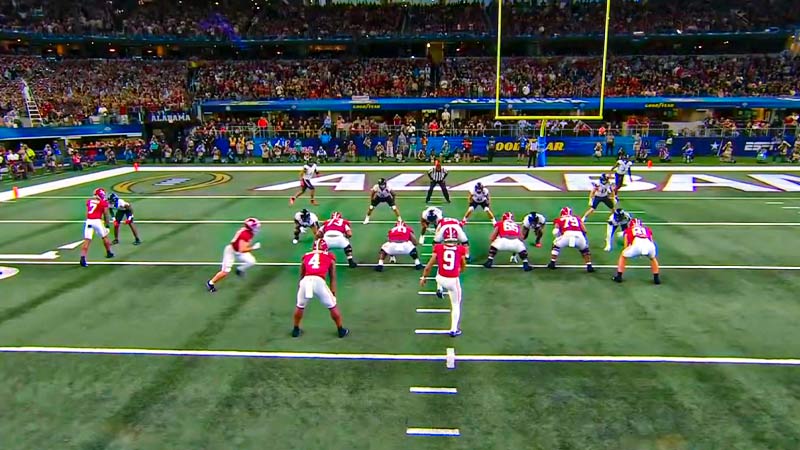In the world of American football, where athleticism and strategy converge, the enforcement of rules is paramount to ensure fair play and sportsmanship. One essential aspect of maintaining these values is the concept of disqualification penalties.
These penalties, though often viewed as a means to uphold the integrity of the game, can provoke discussions about their advantages, disadvantages, and the broader implications they have on the dynamics of football.
In this blog post, we delve into the intricacies of football disqualification penalties, addressing five frequently asked questions that shed light on their significance and implications. So, stay focused.
What Is Football Disqualification Penalty?
A disqualification penalty in American football refers to a group of penalties that, if committed by a player, can result in their ejection from the game. These penalties encompass a range of violations that breach the principles of sportsmanship.
These offenses vary widely and include actions such as unsportsmanlike conduct, severe personal fouls, or repeated violations. Disqualification penalties are enforced to maintain fair play, uphold the integrity of the game, and discourage behavior that detracts from the spirit of competition.
When a player accumulates disqualification penalties, they are removed from the game, leaving their team at a potential disadvantage.
This penalty category underscores the importance of maintaining respectful behavior and adherence to the rules of the sport for the overall enjoyment and fairness of American football games.
When Does Disqualification Penalty Happen?
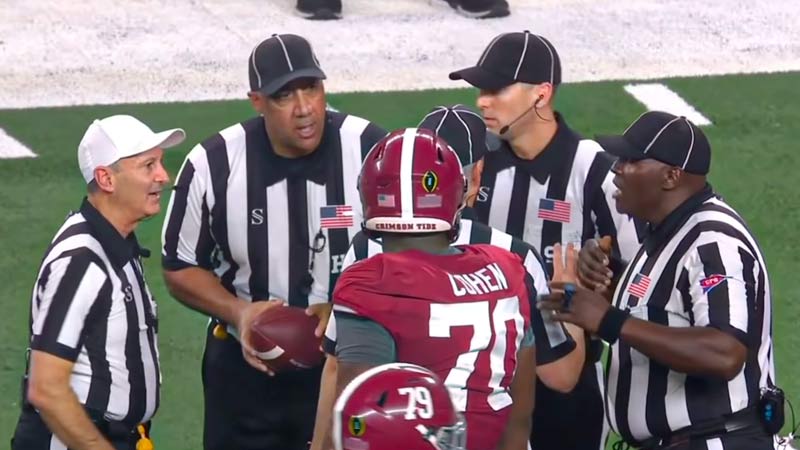
A disqualification penalty in American football can occur when a player commits a severe violation of the rules or engages in unsportsmanlike conduct. Some common scenarios that can lead to a disqualification penalty include:
Unsportsmanlike Conduct
This involves actions that are disrespectful, taunting, or intended to provoke opponents, officials, or spectators. Excessive celebrations, trash-talking, or any behavior deemed inappropriate fall under this category.
Personal Fouls
Certain types of personal fouls that are particularly severe in nature can result in disqualification. This might include dangerous hits, targeting, or intentionally trying to injure an opponent.
Multiple Violations
Accumulating multiple unsportsmanlike conduct or personal foul penalties during a game can lead to disqualification. This highlights the importance of maintaining composure and adhering to the rules throughout the game.
Flagrant Misconduct
Any action that goes beyond the boundaries of fair play and sportsmanship, such as fighting or physically assaulting an opponent, can lead to disqualification.
Ejection-Worthy Offenses
The rules of disqualification can vary depending on the level of play and the league, but in general, any act that is deemed egregious and contrary to the spirit of the game can result in a player’s ejection.
It’s important to note that disqualification penalties are designed to maintain a high standard of sportsmanship, safety, and fair competition.
Aftermath of Disqualification Penalty
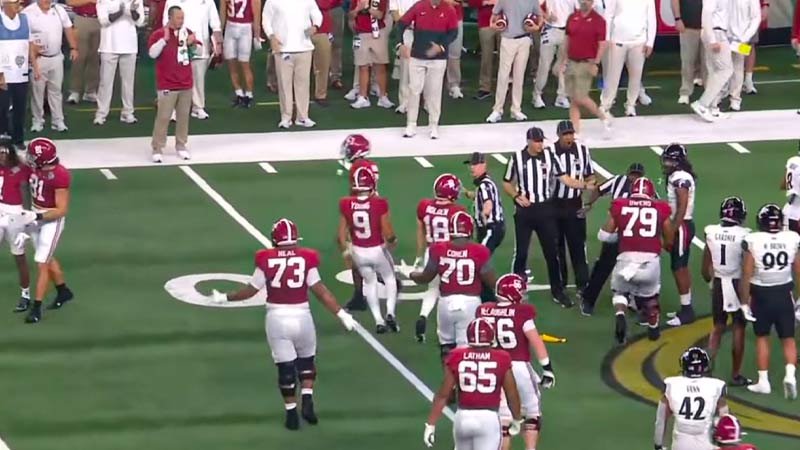
The aftermath of a disqualification penalty in American football can have several implications for both the player and the team:
Player Ejection
The player who receives a disqualification penalty is immediately ejected from the game and must leave the field. They are no longer allowed to participate in the ongoing game.
Team Disadvantage
The team of the disqualified player is left shorthanded, as they must continue playing without the ejected player. This can impact the team’s performance on both offense and defense.
Penalty Yardage
In some cases, a disqualification penalty might come with a yardage penalty that is assessed to the team. This can lead to unfavorable field positions and potentially affect the team’s strategic decisions.
Game Suspension
Depending on the severity of the violation, the ejected player could face additional consequences, such as a suspension for future games. The length of the suspension varies based on league rules and the nature of the offense.
Team Reputation
Unsportsmanlike conduct or repeated disqualifications can harm a team’s reputation and may affect its standing in the eyes of fans, officials, and opponents.
Player Accountability
Players who receive disqualification penalties may be subject to disciplinary action from their team or coaching staff. This can include discussions, reprimands, or additional training on proper conduct.
League Review
In some cases, the league may review the incident that led to the disqualification penalty and decide on further action, such as fines or more severe penalties, if warranted.
Game Impact
The absence of a key player due to disqualification can impact the overall outcome of the game, potentially altering strategies and gameplay dynamics for both teams.
Penalty Signal of Football Disqualification Penalty
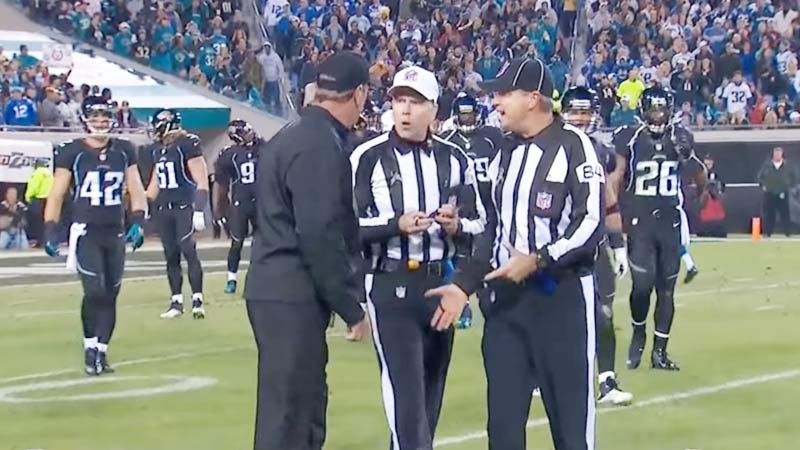
In American football, there isn’t a specific hand signal that referees use exclusively for a disqualification penalty. However, referees use a combination of signals to communicate various penalties, including those that might result in disqualification.
The signals can vary slightly between different leagues and levels of play, but generally, a disqualification penalty might involve the following steps:
Foul Signal
The referee would first signal the specific foul that led to the disqualification. For instance, if it was a personal foul, they might raise one arm horizontally to signal a personal foul.
Announcement
The referee may then provide a verbal announcement to the players, coaches, and spectators to indicate that the player has been disqualified from the game. This announcement typically includes the player’s jersey number and a brief explanation of the violation.
Ejection Signal
While there isn’t a standardized hand signal specifically for ejection, the referee might make a clear and deliberate motion of pointing or motioning toward the sideline to indicate that the player is being ejected from the game.
Escort Off the Field
The ejected player is then escorted off the field by team personnel or officials. The player is required to leave the field immediately without any further involvement in the game.
Advantages of American Football Disqualification Penalty
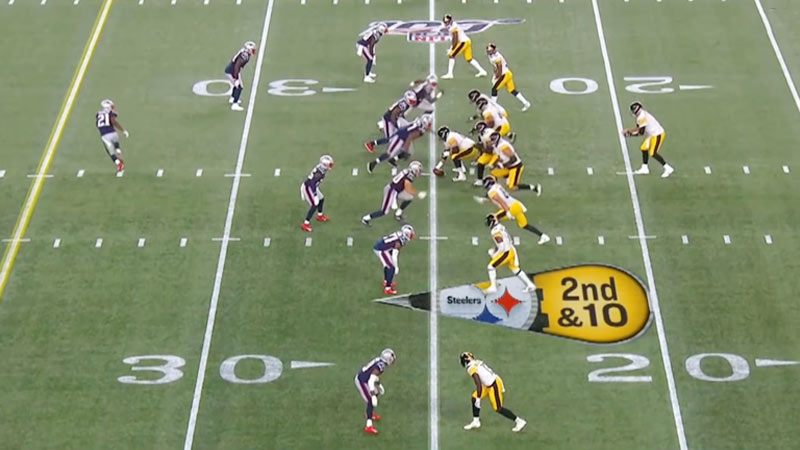
The American football disqualification penalty serves several important advantages that contribute to the overall integrity and sportsmanship of the game:
Maintaining Sportsmanship
Disqualification penalties reinforce the importance of fair play and sportsmanship. Players are reminded to conduct themselves in a respectful and sportsmanlike manner, promoting a positive atmosphere on and off the field.
Player Safety
By penalizing severe personal fouls and dangerous plays with disqualification, the penalty helps prioritize player safety. This discourages actions that could potentially lead to injuries, protecting both the player committing the foul and their opponents.
Deterrent Effect
The prospect of being ejected from the game due to a disqualification penalty acts as a strong deterrent. Players are more likely to think twice before engaging in actions that could result in ejection, helping to prevent unsportsmanlike behavior.
Game Flow
The penalty maintains the flow of the game by penalizing excessive or disruptive behavior that could otherwise lead to disruptions or delays. It encourages a smoother and more continuous gameplay experience.
Level Playing Field
By enforcing disqualification penalties, the rules ensure that all players are subject to the same standards of conduct. This prevents unfair advantages resulting from unsportsmanlike actions or intentional rule violations.
Setting a Standard
The penalty sets a clear standard for behavior on the field, both for players and for coaches. It sends a message that a high level of conduct is expected, contributing to the overall reputation and image of the sport.
Learning Opportunity
Disqualification penalties offer a chance for players to learn from their mistakes. Ejected players and their teams can reflect on the actions that led to the penalty and work towards avoiding such behavior in the future.
Respect for Officials
The penalty fosters respect for officials’ decisions, as players understand that their conduct is subject to evaluation by the referees. This helps maintain a positive relationship between players and officials.
Spectator Experience
A well-disciplined game enhances the enjoyment of spectators. Disqualification penalties promote a more entertaining and focused game, free from excessive confrontations and altercations.
Team Accountability
The penalty reinforces the responsibility of teams to monitor and manage their players’ behavior. Coaches play a vital role in ensuring their players adhere to sportsmanship standards.
Disadvantages of Disqualification Penalty
While the disqualification penalty in American football serves important purposes, there are also potential disadvantages associated with its implementation:
Subjective Judgment
The decision to apply a disqualification penalty can be subjective, as it relies on the interpretation of officials. Different referees might assess similar situations differently, leading to inconsistencies in penalty enforcement.
Game Impact
Ejecting a player due to a disqualification penalty can significantly impact the competitive balance of the game, potentially altering its outcome. A key player’s ejection might create an uneven playing field and diminish the quality of the contest.
Limited Opportunity for Redemption
In some cases, players might make a single mistake that leads to disqualification. The penalty doesn’t allow for the possibility of redemption or correction of behavior during the same game.
Lack of Gradation
Disqualification is a severe penalty, and there might be instances where a more nuanced approach, such as a warning or a lesser penalty, could be more appropriate for certain infractions.
Emotion Regulation Challenges
In the heat of competition, players might react emotionally to certain situations, leading to actions that result in a disqualification penalty. This can be challenging for players to manage, especially in high-pressure moments.
Impact on Player Development
For younger or less experienced players, a disqualification penalty might hinder their development and learning process. Being ejected from a game might deny them valuable playing time and opportunities to improve.
Fan Discontent
Ejected players are often fan favorites, and their removal can disappoint spectators and affect the overall excitement of the game. Fans might feel frustrated when a disqualification penalty changes the dynamics of the match.
Negative Publicity
Instances of player ejections due to disqualification penalties can attract negative media attention and overshadow the positive aspects of the game. This can potentially impact the sport’s image.
FAQs
What exactly is a football disqualification penalty?
A football disqualification penalty encompasses a collection of penalties that, when committed by a player, can lead to their ejection from the game.
These penalties typically involve violations of sportsmanship, such as unsportsmanlike conduct, severe personal fouls, or repeated rule violations. The penalties serve as a reminder of the sport’s values and aim to ensure fair competition.
What are the main advantages of implementing disqualification penalties?
Disqualification penalties play a vital role in maintaining sportsmanship, prioritizing player safety, and deterring unsportsmanlike behavior.
They set a standard for conduct, enhance the spectator experience, and underscore the accountability of both players and teams. However, they are not without their drawbacks and complexities.
How does a disqualification penalty impact the game and players?
When a player receives a disqualification penalty, they are ejected from the game, leaving their team shorthanded. This can affect game strategy, competitive balance, and the overall flow of the match.
Additionally, the ejected player may face further consequences, including potential game suspensions and damage to their team’s reputation.
How do disqualification penalties address player behavior and sportsmanship?
Disqualification penalties serve as a deterrent against player behavior that goes against the principles of sportsmanship.
They encourage players to maintain composure, regulate emotions, and avoid actions that could endanger themselves or others. The penalties also create opportunities for players to learn from their mistakes and grow as athletes.
Are there any potential downsides to disqualification penalties?
While disqualification penalties have clear benefits, they also raise concerns about subjective officiating, game impact, and the limited opportunity for redemption.
The severity of the penalty and its potential influence on the outcome of the game are among the factors that generate discussions around its use.
Wrapping Up
In the realm of American football, disqualification penalties stand as a cornerstone for maintaining fairness, safety, and a high standard of conduct.
Their implementation carries both advantages and disadvantages, making them a topic of ongoing debate.
As we explore the intricacies of these penalties, we gain a deeper understanding of their role in shaping the sport, promoting sportsmanship, and ensuring a balanced and engaging football experience for players and fans alike. Thank you so much.

